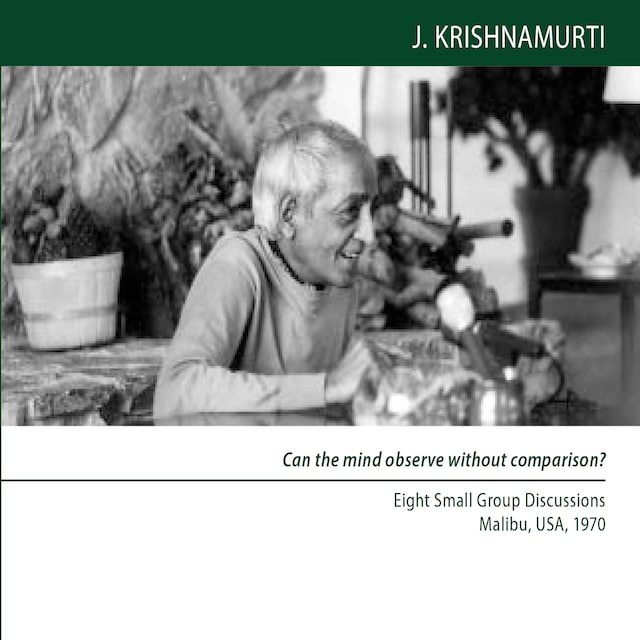
Can the mind observe without comparison?
Eight Small Group Discussions, Malibu, USA, 1970
Opis książki
1. Living with a sustained seriousness - 21February 1970 Duration: 91 minutes • What does it mean to be serious? • Becoming • Why do I compare myself with you or with somebody else? • Do I look at people through images? 2. Can the brain operate without recourse to the past?- 22February 1970 Duration: 92 minutes • Is there self-progress? • Conflict • Security • Any form of division within oneself is a source of conflict. • Can the brain be quiet? 3. What makes one control? - 14March 1970 Duration: 97 minutes • Violence • Why do you control? • Security means to be in a state in which there is no choice at all. • The mind has become sensitive because it has observed, not because it has experienced. • Either you see the fact with the past or you see the fact as it is now. • The word is of the past. 4. Being serious without belief - 15March 1970 Duration: 77 minutes • Can the intellect, a fragment, ever be serious? Serious in the sense of a sustained observation without any distortion. • Control • What is living? • How does it happen that one can be completely harmonious? • What does awareness mean? 5. Attention leads to learning - 21March 1970 Duration: 93 minutes • Inattention and attention. • Observing without the word. • What is the function of sleep? • Is love a matter of culture, a thing of pleasure and therefore dependency? 6. Fear in consciousness - 22March 1970 Duration: 89 minutes • How does it happen that the deep layers hidden in consciousness can be exposed? • Comparison between what is with what has been and what will be, is the process of fear. • Can the mind observe without comparison? 7. What is order?- 28March 1970 Duration: 81 minutes • Order and disorder. • Why does the mind accumulate? • How do you receive something that is not of the mind? 8. How is one to be entirely free of fear?- 29March 1970 Duration: 90 minutes • Fear • All the escaping and the strengthening of fear comes because we are inattentive. • What is sleep?


